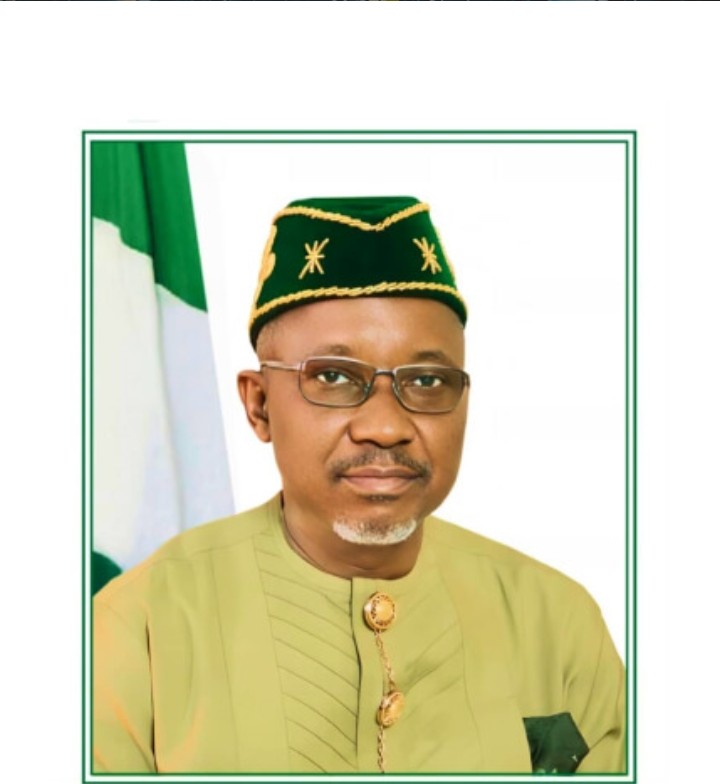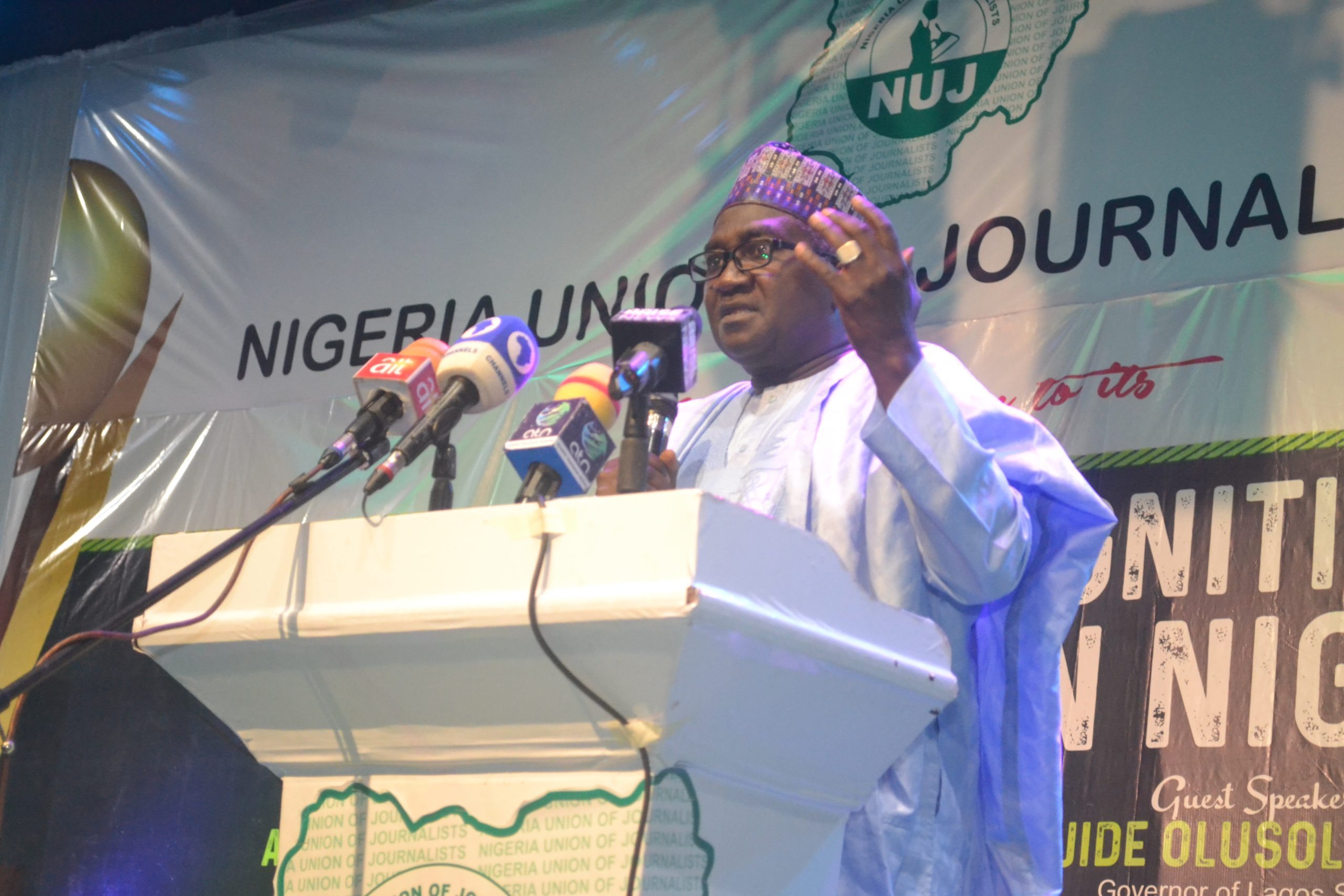The Honourable Minister of State for Petroleum Resources (Gas), Rt. Hon. Ekperikpe Ekpo, has called for urgent and deliberate action to harness Nigeria’s vast natural gas reserves.
He warned that inaction could permanently derail the country’s potential for energy-led economic transformation.
The Honourable Minister delivered this passionate message through his representative, Mr. Abel Nsa, Senior Technical Advisor to the Minister.
This was during the second edition of Asharami Square hosted by Sahara Group in Lagos.
- Onyema laments FG’s inability to protect Nigerian airlines
- Ventra Media Announces Acquisition Of Social Media Agency Naija Go Social
- Cherry Eromosele becomes Executive Vice-President Marketing and Communication
Addressing an audience of energy stakeholders, media professionals, and development experts, the Minister stated that Nigeria stands at a critical crossroads where the decisions made today will shape the country’s energy security and socio-economic development for decades to come.
“This is not just a conversation about energy. It is a call to action.
Gas must not remain a stranded opportunity.
We must act now so that future generations will speak of gas not as a missed opportunity but as the fuel that powered Africa’s transformation,”
Also Read:Sahara Group Foundation reaffirms commitment to African entrepreneurs with MADAA reloaded
The theme of the event, “Harnessing Gas for Africa’s Sustainable Future,” served as a timely reminder of the continent’s energy paradox abundant natural resources paired with energy poverty.
Rt. Hon. Ekpo emphasised that Nigeria, holding one of the largest gas reserves in Africa, must no longer be a bystander in the global energy transition but rather take bold steps to define its own path.
Quoting recent data released by the Nigerian Upstream Petroleum Regulatory Commission (NUPRC), Nsa noted that Nigeria holds over 210 trillion cubic feet of gas.
However, he affirmed that much of this potential remains stranded due to infrastructure gaps and policy bottlenecks.
Furthermore, he stressed that this challenge must be met with robust investments and a well-coordinated national strategy.
According to the Minister, “Natural gas is not merely a transitional fuel to Nigeria. It is a transformational one.
It has the power to energize industries, provide clean cooking options, drive innovation, reduce pollution, and lift millions out of poverty.”
In his remarks, he cited historical examples, such as the case of an American energy company that initially built regasification infrastructure to import Nigerian gas in the mid-2000s.
Due to the shale gas revolution in the United States, the facility was later converted for exports.
This, he said, is a stark reminder of how quickly the global energy landscape can shift and why Africa must take charge of its own narrative.
Referencing The New Map by Daniel Yergin, he reflected on how geopolitical shocks such as the Russia-Ukraine war have disrupted global gas flows, underscoring the need for Africa to develop its energy infrastructure independently.
“Africa cannot afford to wait for the world to get it right. We must get it right ourselves.”
The Minister further emphasised that under the Renewed Hope Agenda of President Bola Ahmed Tinubu, Nigeria’s Decade of Gas initiative is not a mere slogan but a national strategy.
“The decade of gas is our blueprint for sustainable development. It is our means to diversify the economy and end energy poverty. But it cannot work without infrastructure.”
The Petroleum Resources overseer called on both local and international investors to partner with Nigeria.
Moreso, he highlighted key government initiatives such as the Nigeria-Morocco Gas Pipeline, the West African Gas Pipeline, and the Trans-Saharan Gas Project.
Interestingly, the Petroleum resources advocate also praised recent progress with the AKK Pipeline crossing the River Niger, signaling a major breakthrough in domestic gas delivery.
Speaking about the importance of policy support, he reaffirmed that the Petroleum Industry Act (PIA) provides a modern legal and regulatory framework that encourages transparency, investment confidence, and competitive returns.
“The Ministry of Petroleum Resources will continue to work closely with its regulatory agencies the Nigerian Midstream and Downstream Petroleum Regulatory Authority (NMDPRA) and the Nigerian Upstream Petroleum Regulatory Commission (NUPRC) to ensure a responsive, stable, and innovation-friendly environment for investors.”
On the issue of gas flaring, the tech expert emphasised the lost opportunities, stating that every million standard cubic feet of gas flared is a loss of four megawatts of power.
“When someone says stop flaring, they are not just advocating for the environment, they are fighting for our economic survival.”
He applauded the Sahara Group for sustaining the Asharami Square initiative, calling it a vital platform for shaping Africa’s response to sustainable energy development.
“It is an honor to join you in this second edition of Asharami Square, an important initiative shaping how we communicate and act on the urgent themes of energy transition and sustainable development.”
Asharami Square 2.0 brought together stakeholders across the energy value chain, including media professionals to discuss solutions for a just and inclusive energy transition in Africa
Watch Also: MARKETING EDGE ONTV






Comment
No comments found.